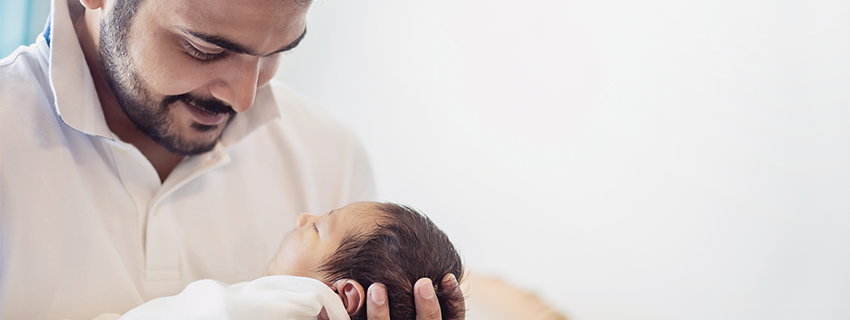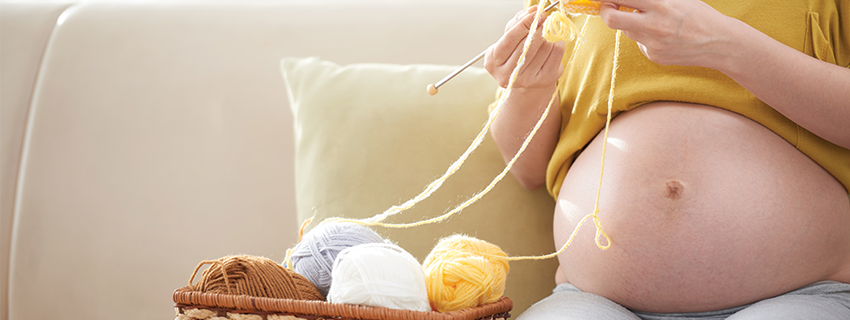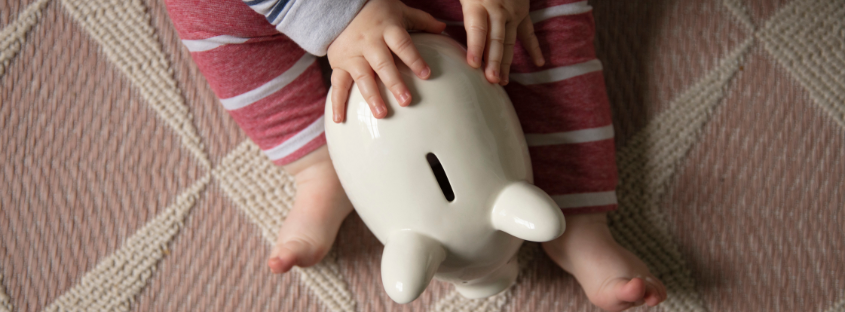UTI or urinary tract infection can be a painful and uncomfortable infection that can even hamper your daily routine. During pregnancy, women are prone to such infections, due to various reasons. However, with the right information and watching out for symptoms can help detect this early and prevent the spread of the infection. Let’s find out more about UTI and what causes it to ensure a safer and healthier pregnancy.
What is UTI?
A urinary tract infection or UTI is an infection that affects any part of your urinary system like kidneys, ureters, urethra and bladder. However, the most commonly affected parts are the lower urinary organs like bladder and urethra.
What are the UTI symptoms?
UTI can cause much discomfort and pain. However, if you are aware of the symptoms, you can diagnose it at the very start, before the infection spreads to other parts like the kidneys, which can make it much worse. Here are the symptoms of UTI to watch out for:
● Frequent urge to pee
● Burning sensation while peeing
● Passing small amounts of urine, frequently
● Urine that smells unpleasant
● Unnatural colour of urine – red or pink indicating blood in urine
● Pain or pressure in the lower back or abdomen (usually in women)
● Fever or chills – this indicates a more severe infection
Why is it common during pregnancy?
There are multiple reasons why UTI can occur more frequently in pregnant women. Apart from your body growing and adjusting and decreased immunity levels, the following conditions may cause UTI in pregnant women:
● Pregnancy hormones cause changes in the urinary tract thus making women more susceptible to urinary tract infections
● Hormone changes also cause a condition called vesicoureteral reflux which causes urine to flow back to kidney from the bladder, thus causing UTI
● A pregnant woman’s urine also has more hormones, protein and sugar in it, thus making the woman more prone to UTI
● As the growing uterus in pregnant women puts more pressure on the bladder, they become unable to pass all the urine – this leftover urine can cause UTI
What causes urine infection?
Apart from the factors mentioned above there are some anatomical and other causes that make women more prone to UTI. Primarily, they are caused by bacteria, but there can be other causes too, as follows:
● E.coli bacteria, which is present in poop, can move from your rectum to your vagina, causing UTI
● Sexual activities during pregnancy or otherwise involving partner’s fingers or devices that may be unclean can cause UTI
● Many women have a bacteria called Group B streptococcus in their vagina and colon, which can result in UTI
● Women have shorter urethras than men thus making it easier for the E.coli bacteria to move from the anus to your vagina, and gradually even up to the kidneys
● Some types of birth control like diaphragms and spermicidal agents increase the chances of getting an UTI
● Post menopause, the decline in estrogen causes changes in the urinary tract, thus increasing the risks of UTI
● A compromised immunity system especially caused by other lifestyle diseases can make you more prone to UTI
● Blockage in the urinary tract caused by kidney stones can make people more prone to UTI
● Abnormal urinary tract systems at birth can cause more UTI as in these conditions, the urine is not fully flushed out and may go back up the urethra
● Any urinary exam with or without machines can expose you to bacteria that causes UTI
How to treat UTI?
When you suspect you have UTI, you should consult your doctor immediately. There are some home remedies as well as prevention methods that can help you tackle the same:
● Antibiotics and painkillers prescribed by the doctor to curb pain and rid your body of the infection
● Heating pad to soothe the pain
● Drink plenty of fluids especially water to dilute the urine and pass urine more frequently
● Drinking cranberry juice has also proved to be helpful in some cases
● Peeing right after having sex can also reduce chances of UTI
● Limiting the use of feminine products like sprays etc. can also help prevent UTI
● Wiping from front to back or washing after you poop, can prevent the E.coli bacteria from moving towards the vagina, thus reducing chances of getting UTI
● Choose clothing like breathable fabrics that do not trap moisture when choosing underwear or pants
● Switching from diaphragm to other safer forms of birth control can also help
● Keep the genital area clean and dry to prevent infections
● Consult your doctor and follow all the precautions during pregnancy to keep away infections and other complications
When to visit a doctor?
If you notice any of the symptoms mentioned above, especially during pregnancy, you should immediately consult your doctor. During this time, your body is undergoing many changes and your overall immunity is compromised. Moreover, during pregnancy, it is not advisable to go for over the counter medication. Thus consulting your doctor is the best bet. If you notice any pain or burning sensation while peeing or have a fever, it’s best to get a urine test done at the doctor’s office. Depending on the severity of the infection, your doctor may prescribe antibiotics or additional tests to treat you.
Key takeaway
UTI or urinary tract infection can be painful and uncomfortable, more so when you’re pregnant. However, it is possible to prevent infections with the tips mentioned above. Ensure that you stay hydrated and keep the genital area clean and dry, to minimize the chances of UTI. It is also easily treatable with antibiotics and other medication. Thus make sure that you consult your doctor when you notice any of the symptoms of UTI.
FAQ
Can a UTI while pregnant hurt the baby?
A UTI by itself only affects the bladder and urethra, which will not hurt your baby. However, if left untreated it can affect your kidney which can lead to complications during pregnancy and childbirth.
How do I get rid of a urinary tract infection while pregnant?
When you have a urinary tract infection while pregnant, it’s best to consult your doctor. Along with a urine test, your doctor may prescribe antibiotics and painkillers that can help treat UTI.
What does a UTI feel like when pregnant?
UTI during pregnancy and otherwise will have all the usual symptoms of the infection. Frequent urge to pee, burning sensation while peeing, fever etc. are the usual symptoms of UTI.
Can a UTI cause miscarriage?
UTI by itself will not cause a miscarriage but it’s essential that you treat it immediately to prevent more complications that can cause miscarriage.
How long can a UTI go untreated?
While some UTIs can go away on their own in a week or so, it’s best to consult your doctor if you suspect you have UTI. As you’re pregnant, this will help curb the spread of the infection, thus ensuring a safer pregnancy for both you and your baby.







































